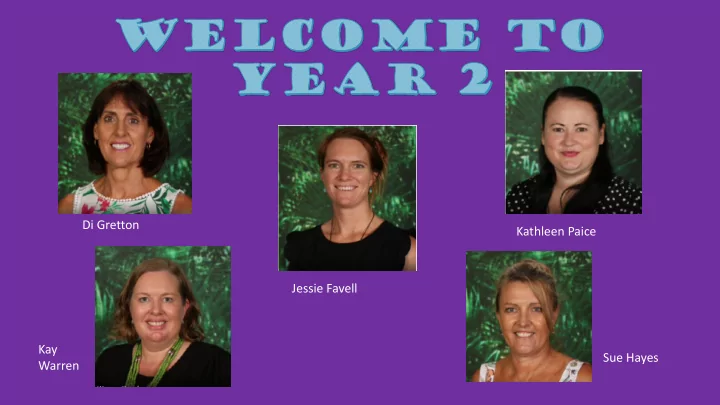

Di Gretton Kathleen Paice Jessie Favell Kay Sue Hayes Warren
Reading Comprehension Numeracy Computational Student fluency and engagement problem solving Wellbeing
Learning Critical Thinking Progressions Reading Feedback Student Writing Numeracy Differentiation Engagement Sage-Fox.com Free PowerPoint Templates
Which character do I prefer? In this unit we are going to explore and compare characters in stories and write about which character they prefer. During this unit students will: • Understand the structure and features of narrative texts • Compare characters within and across texts - Use conjunctions to write comparison sentences • Explains preferences for characters using characters from other texts to compare • Gives reasons for personal preferences - Use of language to give reasons • Identify language features and literal information that describe characters - Character profiles • Uses clues in the text and images to make inferences about characters • Use of noun groups and evaluative language to describe characters in writing • Punctuate sentences and use Capital letters for proper nouns • Spelling - Camera words, spelling words using long and short vowels, Spelling choices for long verbs
Reading Reading groups are conducted each week with a focus on: - Reading strategies - Comprehension • Reading is incorporated in our day in a variety of ways including… - Guided reading - Modelled and shared reading - Independent reading - Reading stamina It is not restricted to the subject of English, but is utilised in all areas of the curriculum.
2 main focus areas: • 1. Problem solving – applying the students knowledge 2. Computational Fluency – Working towards instant recall of Facts Begins with Warm-up and then focussed activities B ased on year level knowledge, children’s ability and focus teaching. Includes problem solving and investigations. Can be whole class, mixed ability or ability based groups. Focus around mental strategies where students are explicitly taught through the a consistent approach of explicitly practical activities and learning talk.
Critical thinking We incorporate critical thinking into all curriculum areas . In essence, this requires our students to be an active learner, rather than a passive recipient of information. They need to use their ability to reason, question and justify. They will learn what cognitive verbs are and use this to understand what we are asking them to do Examples: Problems I have packed my bag for a holiday. Inside it I have a towel, flashlight and Balloon cars Comparing raincoat packed. Where might I be going? Why do you think that?
The purpose of giving students feedback in the learning process is to improve their capabilities. This is done in many ways. * Learning Progressions * Giving assessment back * Student conferences * Buddy feedback * Groups * Self reflection * On the spot
Dif ifferentiation: Is s the proces ess, s, where we as as a sc a school, l, ac accomm mmoda date te the di differ eren ences ces be between en lear arners rs so so t that at al all Year ar 2 st stude dents s hav ave the be best st poss ssible ble chan ance ce of lear arning ing. We look at Students • Readiness to learn • Learning needs • Abilities and knowledge • Interest From this we put students into groups both mixed and like ability, gather resources, adjust tasks and lessons, set the needed pace, have individual learning goals and put support program in place.
Learning progressions
Student engagement We promote positive student engagement across the college with: • Engaging units • The teaching of social skills (Circle time) • Developing and teaching our rules, core values and school expectations • Star of the week awards • Star passes and term celebration when reaching target • Weekly behaviour lessons (whole of primary on Mondays) • Star trek • Individual class engagement programs • Deputy principal awards (semester)
Parent Support Teaching is a partnership between home and school. • History incursion Helpers – 13th February • Homework - term homework sheet • Parent helpers in the classroom • Excursion helpers • Term newsletter Please see your classroom teacher if there is something you are unsure of or need further clarification about. We are more than happy to assist. Our emails are on the Year 2 newsletter or our door is always open.
.13th Feb History Incursion 19th March Community Day ‘ Bullying No Way’ 23rd March Parent Teacher interviews start Week 7/8 Swimming
Recommend
More recommend